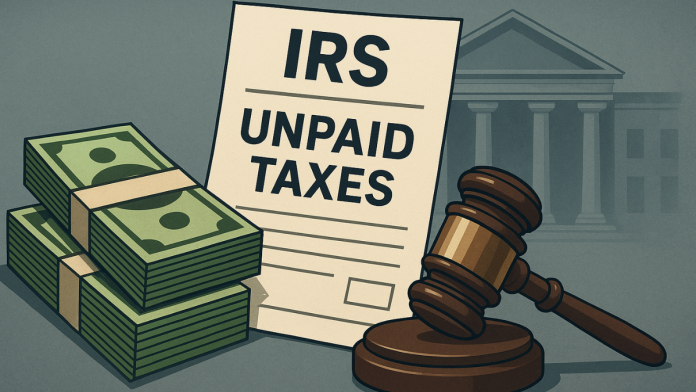A West Virginia business owner, Dean E. Dawson of Hurricane, has been sentenced to 18 months in federal prison after admitting to failing to pay over employment taxes that were taken from his employees’ paychecks. Dawson owned and operated Real Property Consulting Group LLC (RPC Group), a real estate appraisal business based in Hurricane.
The court found that, between 2015 and 2022, Dawson collected these taxes from employees but the money never made it to the Internal Revenue Service (IRS). Instead of forwarding the funds as required by law, he kept them and used the business accounts for personal spending. These taxes are a key source of funding for important government programs, making the failure to pay them especially damaging.
U.S. District Court Judge Robert C. Chambers, who handed down the sentence, stressed that timely payment of payroll taxes is not optional but an essential duty for all businesses. By ignoring this duty, Dawson not only cheated the government but also hurt honest taxpayers who follow the rules.
💵 SpaceX’s $5B earnings vs. $6k tax bill: shocking contrast revealed in secret documents
Employment taxes are amounts withheld from employees’ paychecks by their employers to cover Social Security, Medicare, and federal income tax. Employers must send these funds to the IRS on time. These taxes support essential programs like Social Security and Medicare, and failure to pay them is considered a serious federal crime.
Over Half a Million Dollars in Tax Loss
Court records revealed that the total tax loss caused by Dawson’s actions reached about $525,000. This large sum represented money withheld from hardworking employees that never went to fund Social Security, Medicare, or federal operations.
Investigators also discovered that the company’s accounts were used to cover Dawson’s personal expenses. Payments went toward personal credit card bills, the home mortgage of his wife, and even checks issued to her, despite the fact that she was not employed by RPC Group.
The financial misconduct was not limited to the business. From 2018 through 2023, Dawson also failed to file personal income tax returns altogether. This meant that while employees trusted him to handle payroll taxes correctly, both the company and his personal taxes were being ignored.
The IRS Criminal Investigation division handled the case, carefully examining years of financial records. The scale of the unpaid taxes, paired with the use of company money for personal needs, demonstrated a willful failure rather than an accidental oversight.
Queen Naja convicted for role in $1 million fraudulent IRS refund
Prison Time, Supervised Release, and Restitution Ordered
The federal court handed Dawson an 18-month prison sentence for the offense. In addition to the time behind bars, he was ordered to serve three years of supervised release once the prison term is completed.
Judge Chambers also ordered Dawson to pay more than $430,000 plus interest in restitution to the United States. This money represents the unpaid tax amounts that should have been delivered to the IRS years ago. While the total tax loss was estimated at $525,000, the restitution reflects the part that is recoverable.
The prosecution was led by Trial Attorney Rebecca A. Caruso of the Justice Department’s Tax Division and Assistant U.S. Attorney Jonathan Storage for the Southern District of West Virginia. Both highlighted how employment taxes make up a significant share of the nation’s revenue and stressed that these laws exist to protect both employees and government programs.
The sentencing marks the end of a lengthy investigation into Dawson and his company. The case serves as a reminder that failing to pay over payroll taxes is not only a financial crime but a breach of trust between employers, their workers, and the government.


